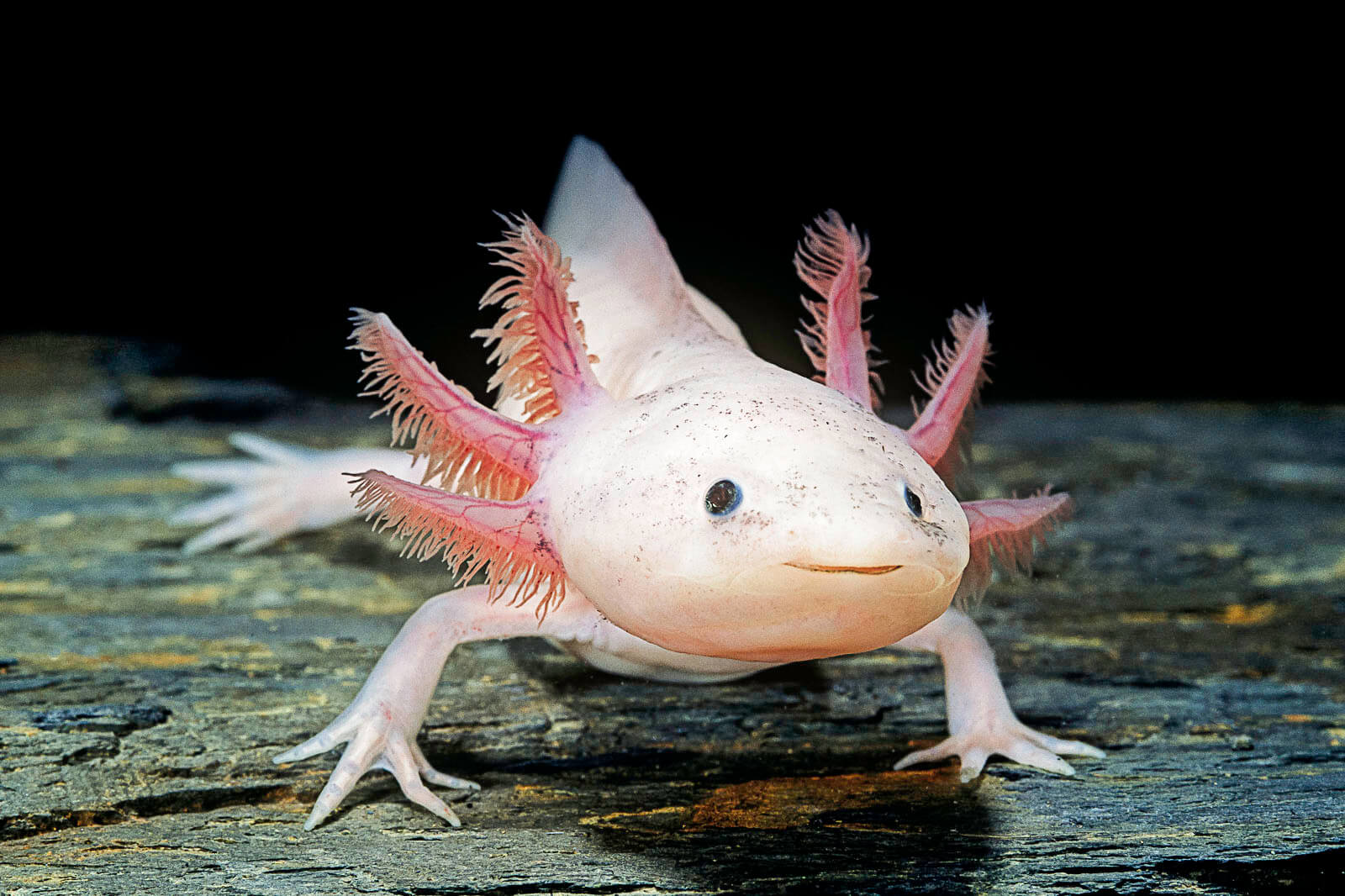
34 interesting facts about axolotls
- 👁️ 263
The axolotl is a unique and fascinating aquatic creature that has captivated the attention of scientists and animal enthusiasts alike. In this article, we will explore some interesting and little-known facts about axolotls.
- Axolotls are amphibians that are native to Mexico.
- They are also known as Mexican salamanders.
- Axolotls have the ability to regenerate lost body parts, including limbs and even parts of their brain and spinal cord.
- They are commonly used in scientific research due to their regenerative abilities.
- Axolotls can live for up to 15 years in captivity.
- They have external gills that allow them to breathe underwater.
- Axolotls have a unique ability to regenerate their gills.
- They can grow up to 30 centimeters in length.
- Axolotls come in a variety of colors, including white, black, grey, and brown.
- They are able to change color in response to stress or changes in their environment.
- Axolotls are carnivorous and primarily eat small fish, insects, and crustaceans.
- They have small teeth that are used to grasp their prey.
- Axolotls have a flattened head and a wide mouth.
- They have four limbs that are similar in appearance to those of a salamander.
- Axolotls have a long, tapering tail that helps them to swim.
- They are able to regenerate their spinal cord, which is unique among vertebrates.
- Axolotls are able to breathe air through their lungs as well as through their gills.
- They are able to survive in highly polluted water.
- Axolotls are able to detect changes in water pressure and vibrations through their lateral line system.
- They are social creatures and are often kept in groups in captivity.
- Axolotls have a high tolerance for cold water temperatures.
- They are able to survive in water with a temperature as low as 10°C.
- Axolotls have been used in traditional medicine in Mexico to treat a variety of ailments.
- They are able to heal their wounds quickly due to their regenerative abilities.
- Axolotls are able to regenerate their heart tissue.
- They have a low metabolic rate, which allows them to survive in low oxygen environments.
- Axolotls are able to detect chemical cues in the water to locate prey.
- They are able to swim in a variety of positions, including upside down and sideways.
- Axolotls are able to absorb oxygen through their skin.
- They are able to move their eyes independently of each other.
- Axolotls have been bred in captivity for use as pets.
- They require a specific water temperature and pH level in order to thrive in captivity.
- Axolotls are at risk of extinction due to habitat destruction and pollution.
- Efforts are being made to conserve and protect axolotls in their native habitat.
Axolotls are a unique and fascinating creature that has many remarkable features. From their regenerative abilities to their ability to survive in highly polluted water, axolotls continue to captivate the attention of scientists and animal enthusiasts alike. Efforts must be made to protect and conserve these creatures so that they may continue to thrive in their native habitat for generations to come.
The axolotl is a unique and fascinating aquatic creature that has captivated the attention of scientists and animal enthusiasts alike. In this article, we will explore some interesting and little-known facts about axolotls. Axolotls are a unique and fascinating creature that has many remarkable features. From their regenerative abilities to…